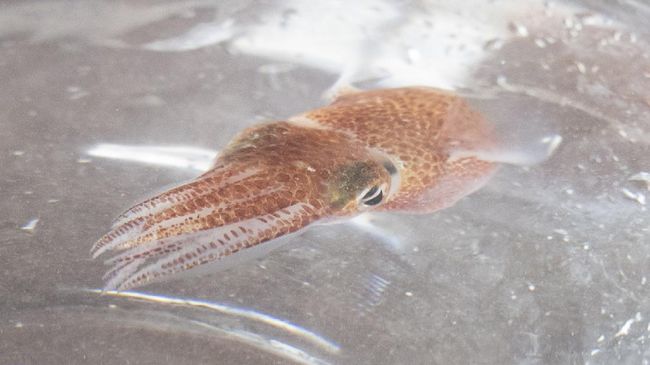Jakarta, CNN Indonesia —
A total of 128 squid from Hawaii, the United States is reported to have been sent to the International Space Station (ISS). Delivery of this squid for research needs.
A baby Hawaiian bobtail squid raised at the University of Hawaii’s Kewalo Marine Laboratory is sent into space on a Falcon 9 rocket from the Kennedy Space Center in Florida on June 3, 2021. The squid’s delivery is on a SpaceX mission to the International Space Station.
Researcher Jamie Foster, of the University of Hawaii, is studying the possibility that spaceflight affects the squid for several weeks. Then the squid will return to Earth in July.
Launching the AP, squid have a symbiotic relationship with natural bacteria that help regulate human bioluminescence. The mission is expected to improve human health during long space missions.
According to researchers from the University of Hawaii, Margaret McFall-Ngai said when astronauts are in low gravity, the human body’s relationship with microbes is called changing.
“We’ve found that the symbiosis of humans with their microbes is disrupted in microgravity, and Jamie has shown that in squids. And, because it’s a simple system, he can tell what’s wrong,” said McFall-Ngai.
Foster is now principal investigator on a NASA program to examine how microgravity affects interactions between animals and microbes.
“As astronauts spend more time in space, their immune system becomes what’s called dysregulation. It doesn’t function properly. Their immune system doesn’t recognize bacteria easily. They get sick sometimes,” Foster said.
Foster further said, he understands the conditions that occur in squid in space can help solve health problems facing astronauts.
“There are aspects of the immune system that don’t work well under long-range spaceflight,” he said.
Foster explained that if humans want to spend time on the moon or on Mars, they must prepare physically. This step is done so that humans can later carry out their mission safely.
Quoted by The Guardian, the Kewalo Marine laboratory breeds squid for research projects around the world. The small animals are abundant in Hawaiian waters and are about 7.6 cm long like adults.
(can / mik)
– .


